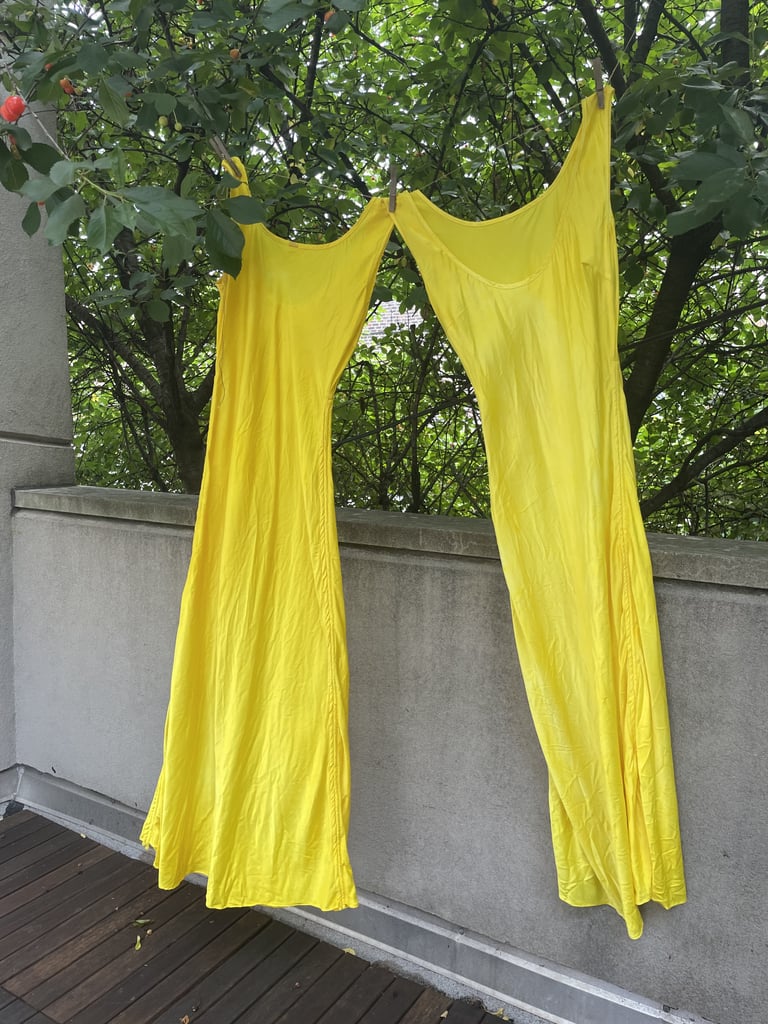How to Dye Clothes With Turmeric at Home
One of Our Favourite Designers Gives Us a Tutorial in Dyeing a Slip Dress With Turmeric
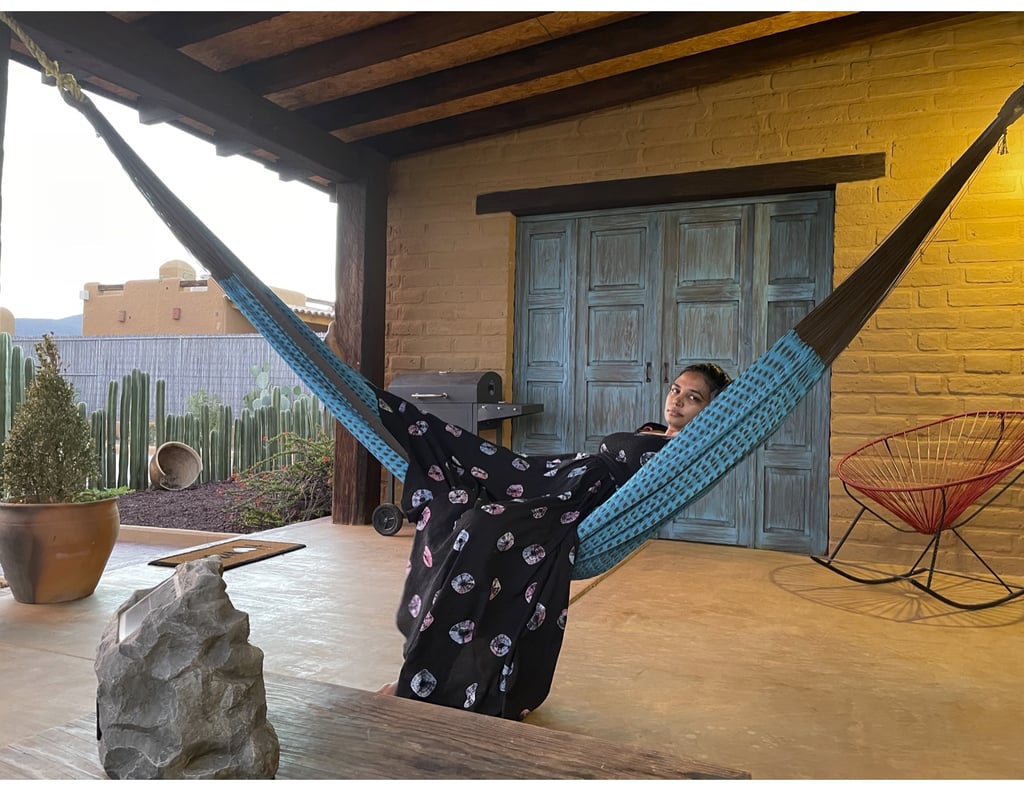
I've always been fascinated by natural processes in beauty, cooking, and, of course, fashion. During a virtual preview with Sheena Sood, designer of Abacaxi, we got into a conversation about the use of natural dye for clothing. Sood shared that she uses spices and fruit to dye fabrics and that turmeric is one of her favourites as it has naturally rich colour and healing properties. I was fascinated, as my only experience dipping fabrics has been with store-bought dyes. I asked if she would be willing to share her process, and she graciously agreed!
Scroll for a step-by-step straight from Sheena Sood:
About Turmeric Dyeing and Ayurveda
Not only does turmeric yield a bright, saturated yellow colour as a dye, it also has healing, anti-inflammatory, and antioxidant properties. In Ayurvedic medicine, the turmeric-dyed cloth is actually used for its anti-inflammatory and pain-relieving qualities. Our skin is an organ, and what we put on the surface is absorbed into our body. Natural dyes can be used to make healing cloths and can even target specific ailments based on the plants, herbs, spices, or flowers used for dyeing.
I dyed 100-percent-silk slip dresses, but this turmeric dyeing method is also perfect for silk pillowcases, so you can absorb all of the beautiful healing powers of turmeric while you sleep.
For this project, I dyed two silk slips at a time. Interestingly, the slip I submerged only seconds earlier took on a more golden and slightly deeper colour than the second one I submerged, which came out with a lovely lemon-yellow tone. If you'd like to dye several pieces together, make sure you have a pot that is large enough to submerge all of them underwater at the same time.
When using most natural dyes, a mordant must be used on the fabric before dyeing, in order for the colour to last. If you skip the alum mordant, the turmeric colour will eventually wash out, so it's an important part of the process.
After dyeing, washing, and drying, the silk may retain some of the smell of the spice. This "turmeric fragrance" is actually part of what makes the fabric therapeutic.
What You'll Need
- 1 teaspoon alum (this is the mordant)
- 1 teaspoon turmeric powder (the dye!)
- A white 100-percent-silk slip, scarf, or pillowcase
- A dye pot (any pot that is not used for food and is nonreactive)
- A stick or something to stir the pot with
- Gloves
Silk Slip Before the Dyeing Process
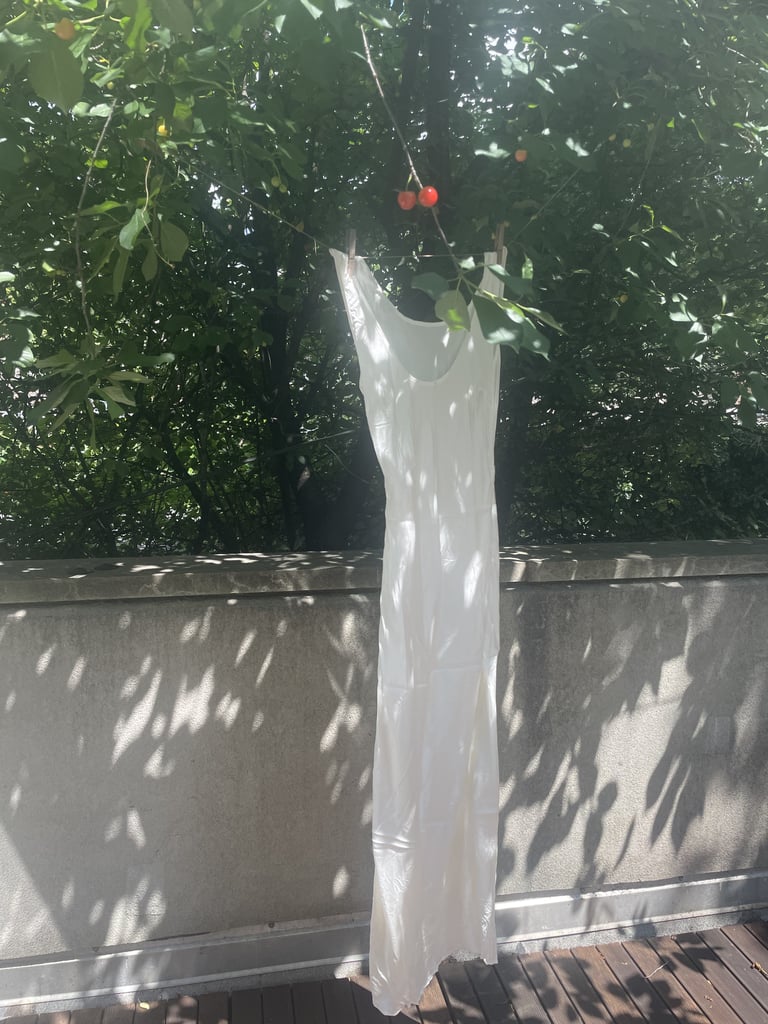
Step 1

Steps 2, 3, 4, and 5
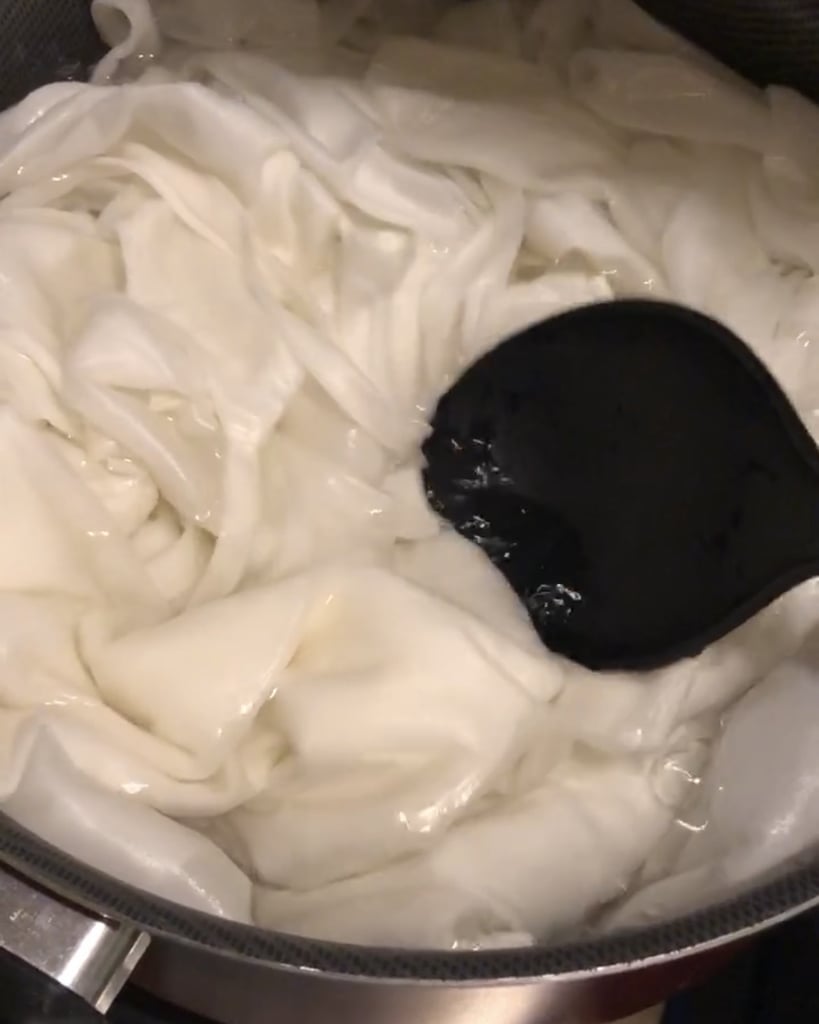
Step 6
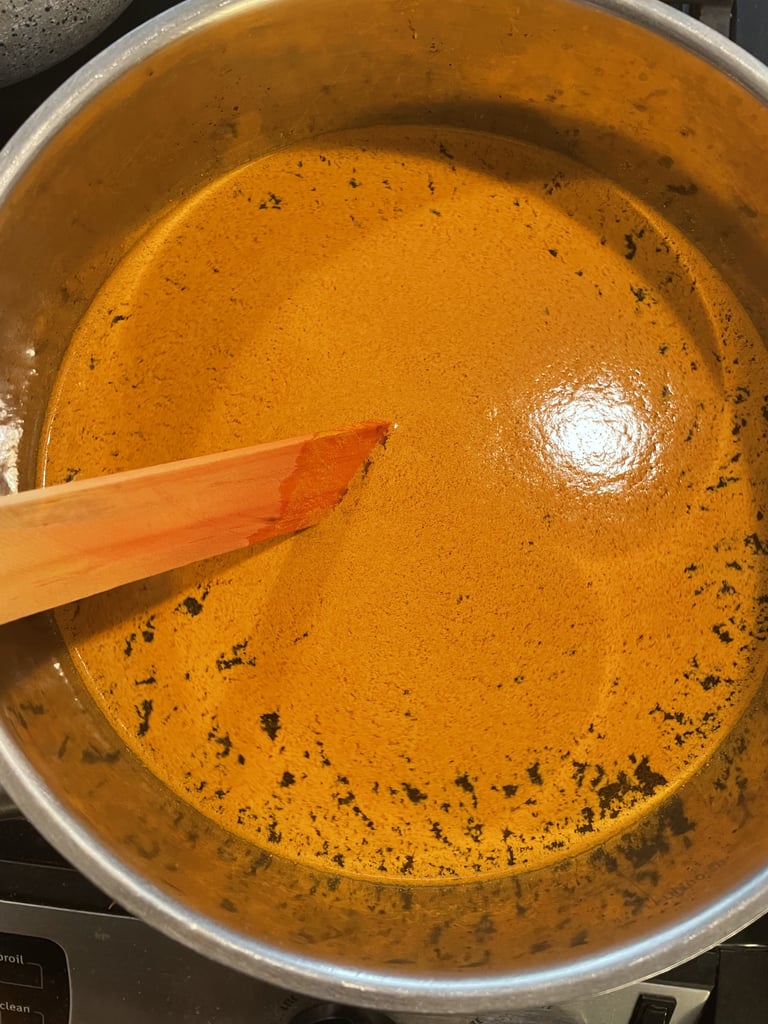
Step 7
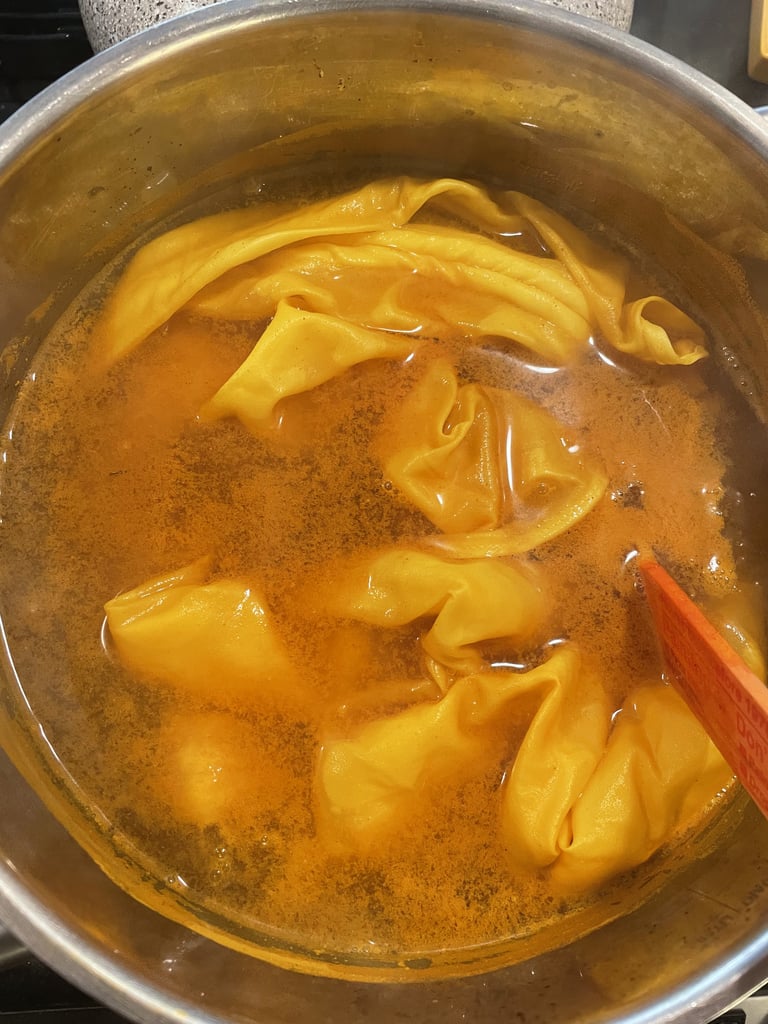
Step 8
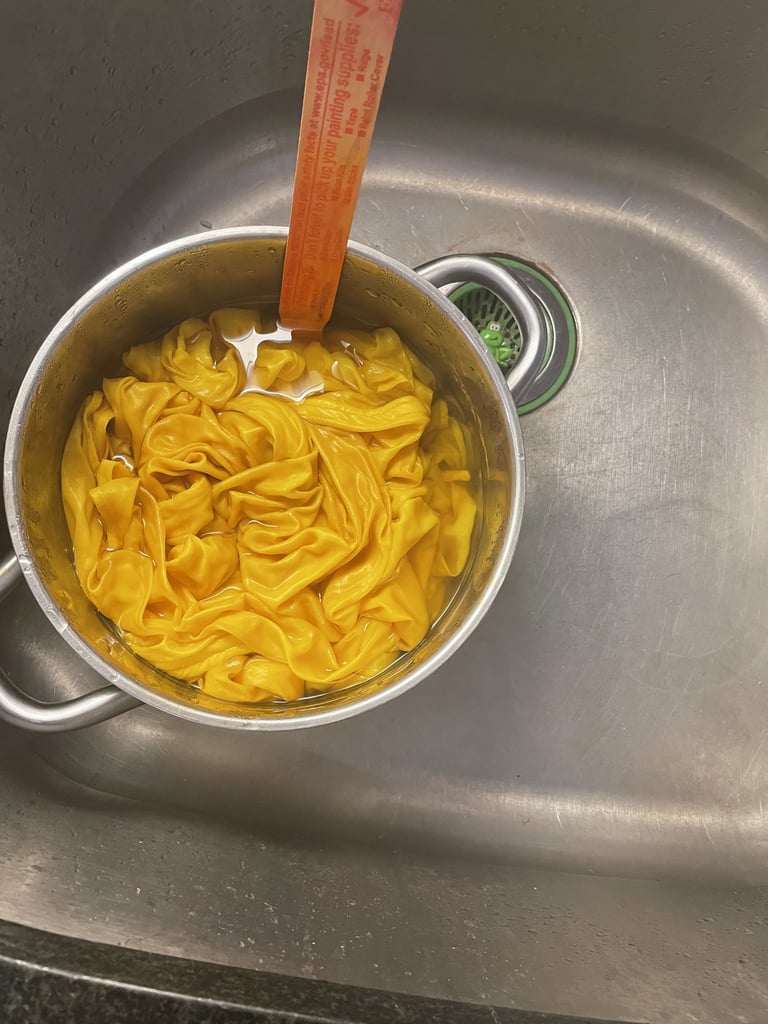
Step 9
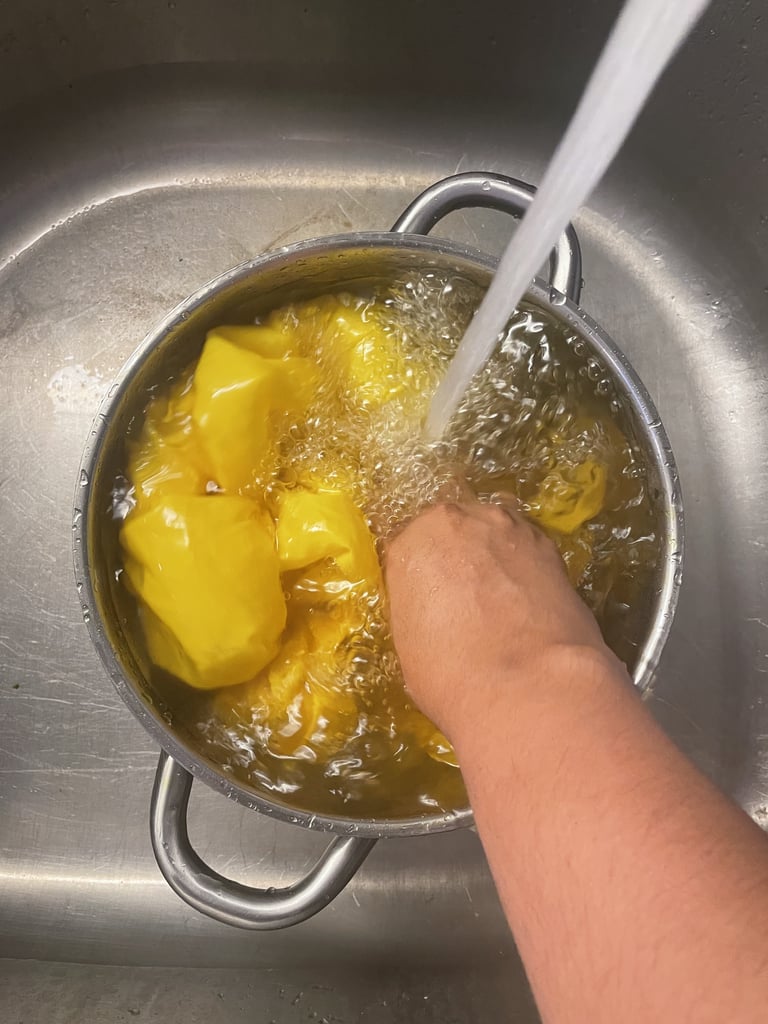
Step 10
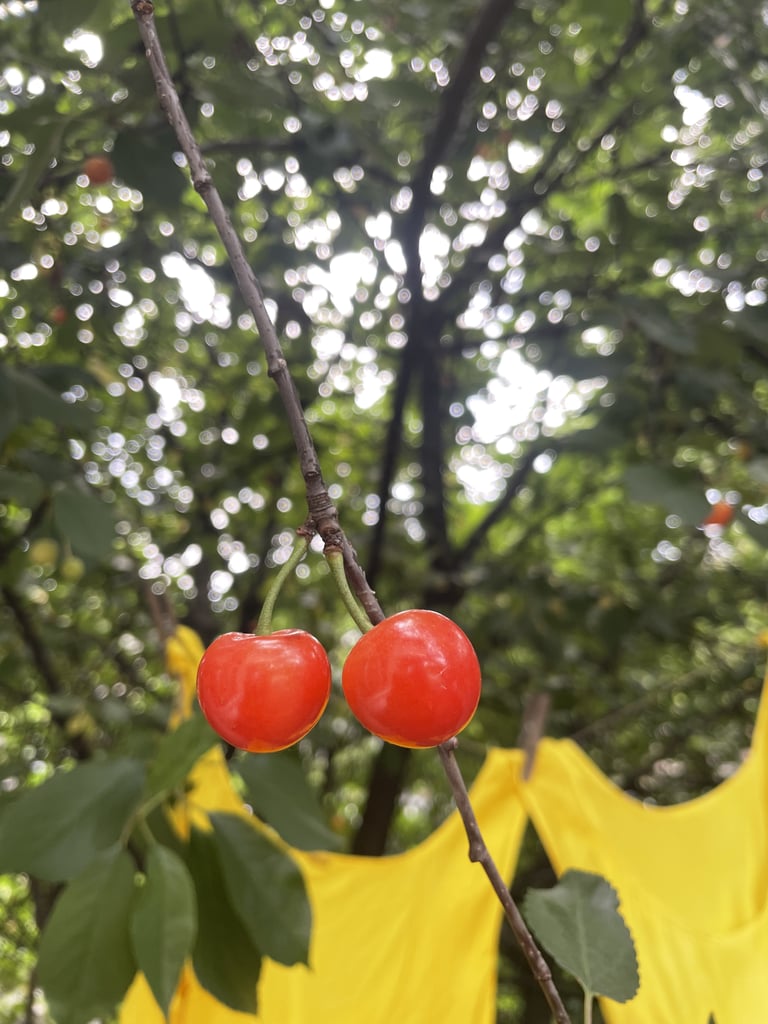
Wear On Repeat!
